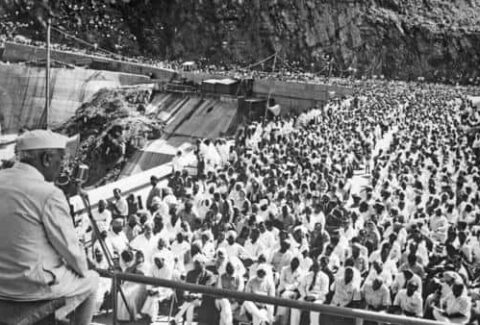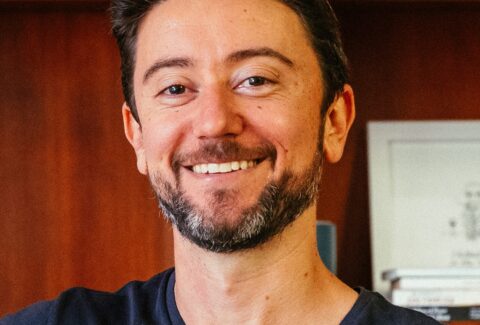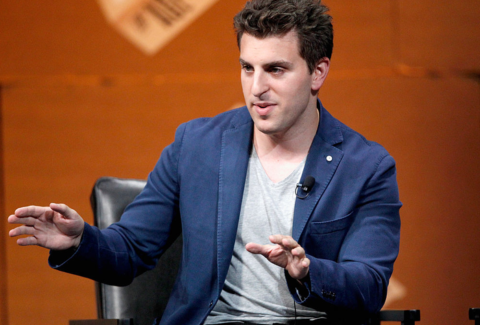The AI Dilemma – a riveting presentation
Welcome to the thirty-fourth edition of ‘3-2-1 by Story Rules‘.
A newsletter recommending good examples of storytelling across:
- 3 tweets
- 2 articles, and
- 1 long-form content piece
Let’s dive in.
🐦 3 Tweets of the week
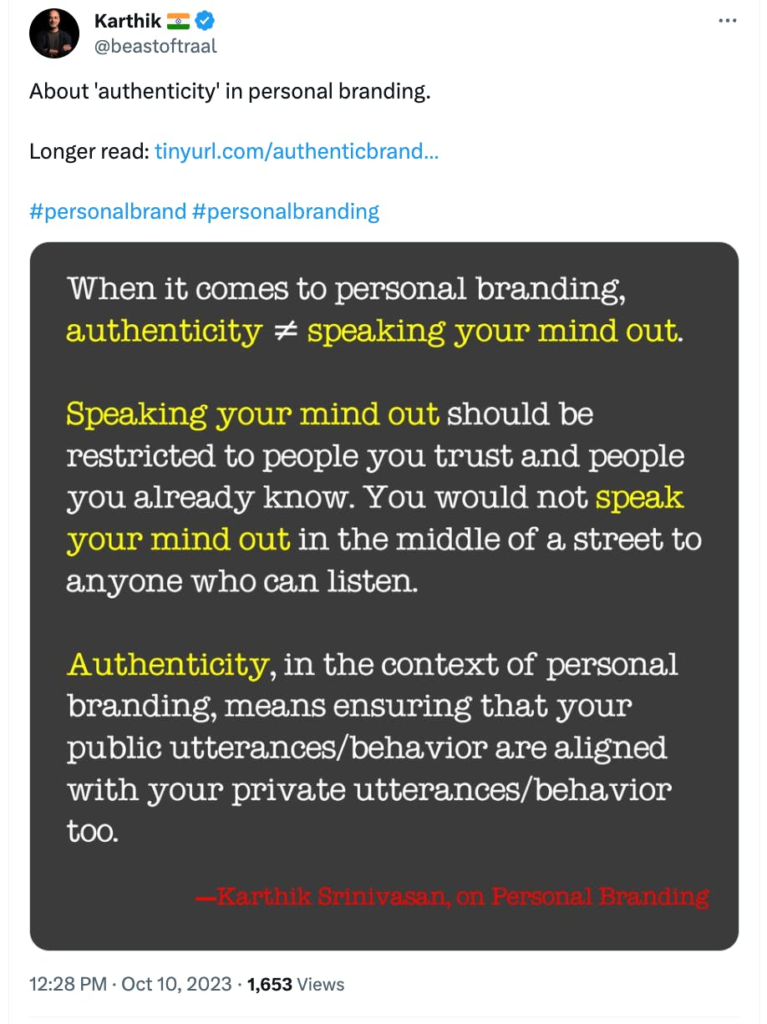
I love this nuanced take by Karthik on authenticity on social media. You don’t have to share everything, but what you share must be authentic.

Fascinating view. What surprised me the most – how empty Africa is. And also how concentrated China is on the coast. Of course Google Maps may not be the default app used in China…
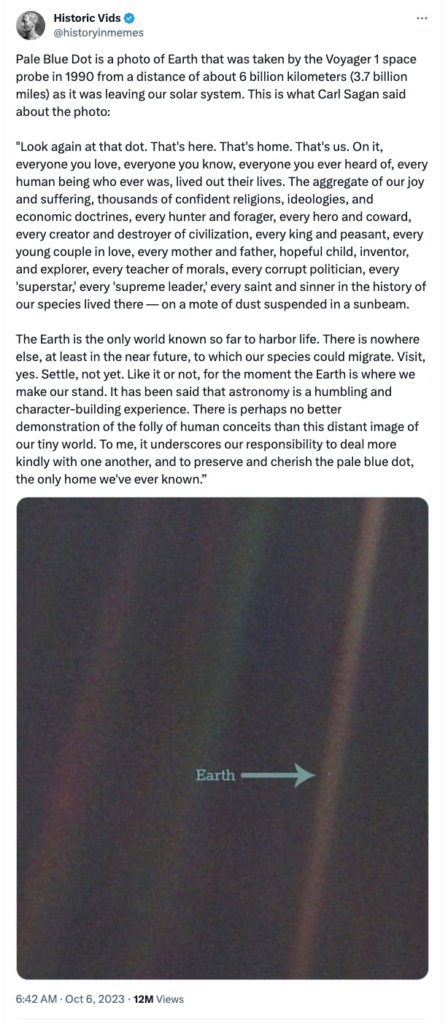
Such wise, evocative words from Carl Sagan.
📄 2 Articles of the week
News, opinions, and analyses have been flying thick and fast in the last week since the gruesome attack by Hamas and the expected Israeli reprisals.
You will find some element of bias in every piece written on this topic – but I found this article by the redoubtable Yuval Noah Harari to be illuminating.
Harari uses the frame of a scientific experiment to describe political actions taken by Israeli politicians over the decades since the mid-20th century:
Politics often works like a scientific experiment, conducted on millions of people with few ethical limitations. You try something – whether increasing the welfare budget, electing a populist president or making a peace offer – witness the results, and decide whether to proceed further down that particular path; or you reverse course and try something else. This is how the Israeli-Palestinian conflict has unfolded for decades: by trial and error.
The net point Harari makes: Whatever approach the Israelis took – trying for peace, disengagement or aggressive containment – the response from radical elements in Palestine has been to indulge in violence.
Surely the Palestinians must have their own version of the story. In fact, this long tweet by US-based journalist Isaac Saul offers some deeper historical perspective into the conflict, as well as mistakes made by both sides.
Overall, both make for tragic and depressing reading.
b. ‘In World Cups, pressure comes with the territory. It’s what makes winning sweet’ by Sambit Bal
It’s Cricket World Cup time and there’s some great storytelling on ESPNCricinfo. This week, I’m highlighting this gem from Sambit Bal, who quotes Billie-Jean King in saying “Pressure is privilege”.
First, Bal sets some context: generally World Cups are stressful affairs, but this Indian team has to face more hardship than others.
For instance, take travel:
… no other team (apart from India) will log more air miles during this tournament, go through more airport routines, and play at more venues. Their World Cup began with a 2500-kilometre leg from Guwahati to Thiruvananthapuram, a route so thin that no direct commercial flights exist on it. With their two warm-up games in those cities washed out, all that travel would turn out to be an exercise in futility.
Through the course of their league games, each played at a different venue than the one before, they will have travelled about 13,000km, roughly 3000 more than second-placed England.
And the clamour for tickets from fans:
And the demand for tickets – what an absolute menace. Each team member is allotted three per game, but hundreds of acquaintances beg for one or more. It prompted Virat Kohli, who must get more such requests than most, to
put out a social-media post: don’t ask me for tickets, enjoy the World Cup from your homes, please. Another player made “No tickets please” his WhatsApp profile status. Others avoid calls from the usual suspects.
But should the Indian cricket player think about his stressful state in self-pitying terms? Or instead, reframe it and look at things from a broader perspective. Here’s Bal, referring to Rahul Dravid (the legendary ex-player and coach of the Indian cricket team):
But it took Dravid only a couple of minutes to set things in perspective. He was responding in Hindi, so I will paraphrase. What trouble, he said. What an exciting opportunity, instead, to go to so many different places, let fans have a chance to see their favourite players, from airports to stadiums. We are playing a World Cup at home, in front of our people. What can be bigger than that? What can be more exciting?
A great lesson on the costs and privileges of being in the limelight.
📺 1 long-form watch of the week
a. The AI Dilemma by Tristan Harris and Aza Raskin(1:07:30)
Last week, I shared a presentation by VC Bill Gurley, which eloquently spoke about the dangers of regulation, especially when influenced by incumbents.
Perhaps Mr. Gurley was trying to caution against enacting strong regulation in the field of AI.
Well, he should listen to two gentlemen – Tristan Harris and Aza Raskin – who gave a talk titled ‘The AI Dilemma’ in March 2023.
Tristan and Aza are tech insiders from Silicon Valley who decided to quit and take up the cause of putting in place guardrails to prevent harm from the abuse of new technology. These two are among the most prominent voices in the famous Netflix Documentary, ‘The Social Dilemma‘.
In this compelling talk given to a private gathering in San Francisco, they both make a strong case for taking preventive action before AI does incalculable harm to society.
The talk opens with a stunning statistic: Half of all AI Researchers believe that there is a 10% or greater chance that humans would go extinct from our inability to control AI.
For sure, the talk acknowledges the massive and unimaginable good that AI can do in society. But just like social media started off as a force for good and ended up having several debilitating and far-reaching negative effects on society, the speakers worry that AI could also lead to many worrisome unintended consequences.
Here’s a list of some of the aspects that we ought to be deeply concerned about:
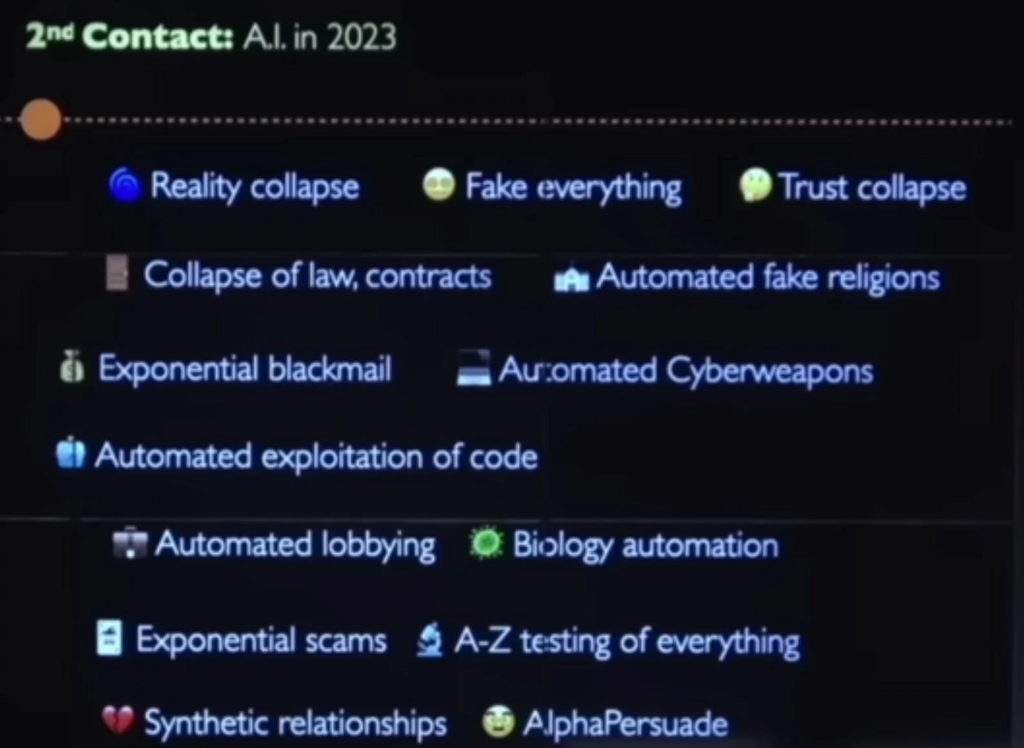
Source: Presentation by Tristan Harris and Aza Raskin, Center for Humane Technology
Tristan and Aza have been delivering this message to lawmakers in Washington DC, and there has been some impact in terms of concerted government action to control the repercussions of this powerful technology. Of course, when there is power at play, you can expect a tussle between politicians and businessmen…so the jury’s still out on this one.
Tristan and Aza are hopeful of a positive outcome, however, using the example of the exemplary coordination between global governments post-World War II to ensure that the common proliferation of nuclear weapons was prevented (with only a handful of countries having access to them). Perhaps, they hope, we can have a similar outcome for AI.
The AI Question is perhaps the most important one that our generation has to grapple with and answer. This presentation makes a compelling case for why caution is warranted.
And oh, it features some brilliant storytelling, including the use of hard data, impassioned delivery, concrete examples, vivid analogies, striking visuals, pop-culture references, pattern-finding, emotions… the list goes on.
It’s a must-watch.
(If you’d like a follow-up, listen to this sharp conversation between Harris and veteran tech journalist Kara Swisher, which happened in June 2023).
That’s all from this week’s edition.
Photo by Alex Litvin on Unsplash



